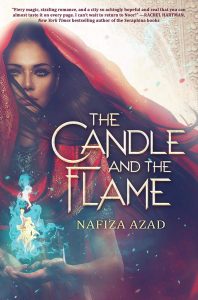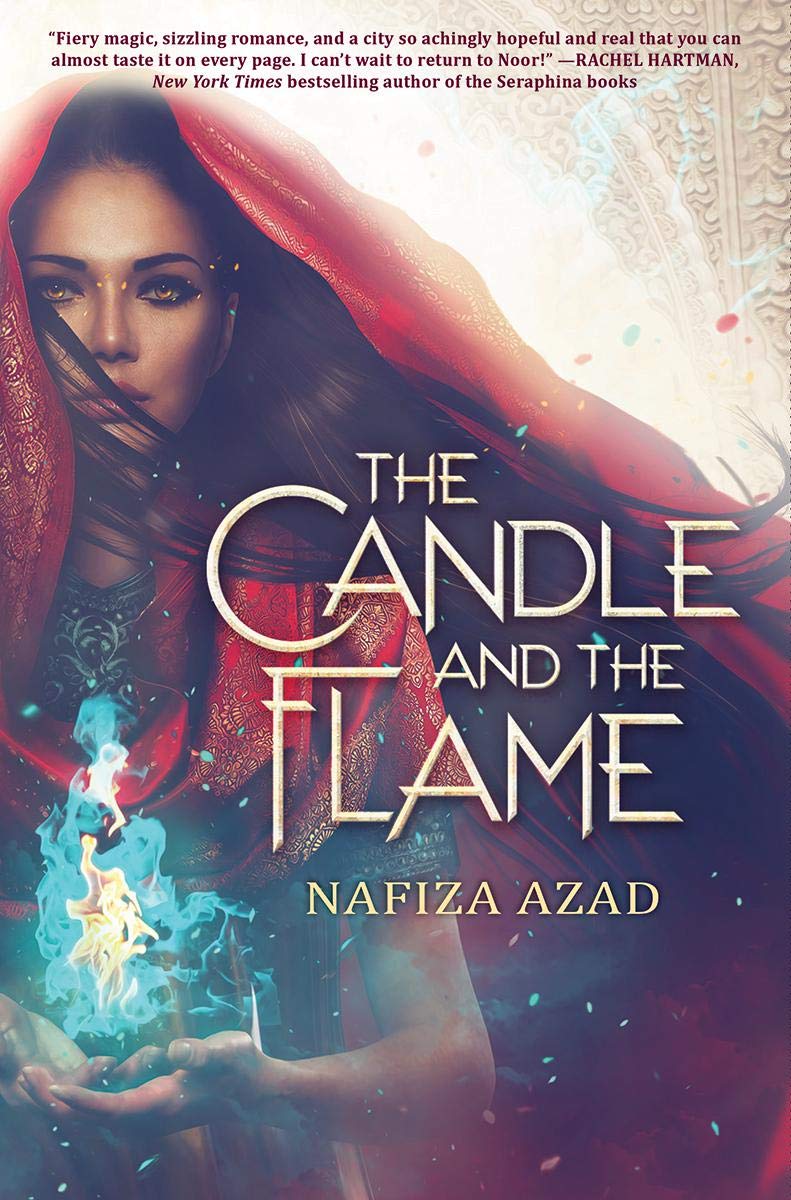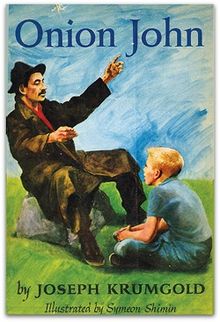 Fatima doesn’t remember life before her adopted family, especially not since almost the entire city of Noor was slaughtered by a chaotic djinn tribe, the Shayateen, eight years ago. The only survivors were Fatima, her sister Sunaina, and Laali, an old woman who sought shelter with the girls. Since then, Noor has become a thriving city of refugees, and Fatima and Sunaina have gotten along the best they could, rebuilding their lives from the ashes.
Fatima doesn’t remember life before her adopted family, especially not since almost the entire city of Noor was slaughtered by a chaotic djinn tribe, the Shayateen, eight years ago. The only survivors were Fatima, her sister Sunaina, and Laali, an old woman who sought shelter with the girls. Since then, Noor has become a thriving city of refugees, and Fatima and Sunaina have gotten along the best they could, rebuilding their lives from the ashes.
Noor’s success is thanks in large part to another clan of djinn, the Ifrit, who drove out the Shayateen and continues to protect its borders. But the Shayateen are restless again, and an act of violence awakens in Fatima her own djinn fire, the magical essence that gives djinn their power. She’s not djinn, not human, but somewhere in between – and Noor will need her help if it is to survive the coming invasion.
Complicating everything is her relationship with the handsome Ifrit commander Zulfikar, charged with protecting her after her power is discovered. But as much as Fatima wants to let herself love him, she can’t help but wonder if he is drawn to her or just the djinn fire inside her.
Definitely, one of the best parts of Nafiza Azad’s debut novel is the richly imagined city of Noor; its sights, smells, and people come alive on the page, drawing the reader into Fatima’s world. In terms of the story itself, The Candle and the Flame has a pretty traditional and predictable romance arc: a beautiful and capable heroine discovers she is uniquely positioned to save the day while a handsome, noble man falls passionately in love with her. Zulfikar really seems to have no personality. Rather, his purpose in the novel is to stand in as an object of desire and half-heartedly create romantic conflict. This is a story you’ve heard before, but encased in a richly imagined, sensual world that many readers will enjoy immersing themselves in.
My one nitpick is the age difference between Fatima (18) and Zulkifar (the djinn equivalent of 25). Maybe I’m showing my age, but this gap seems inappropriate and icky, even though Fatima is a legal adult by our standards. I did appreciate, on the other hand, Azad’s measured attention to women’s position and society. The castigation of a prince for his lascivious looks and advances, a major plot point about a dangerously possessive husband, and the framing of djinn culture as a matriarchal society provide multiple sites for the critique of gender norms and violence against women.
A copy of this book was provided by the publisher, Scholastic, for review.



